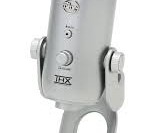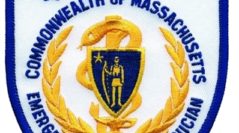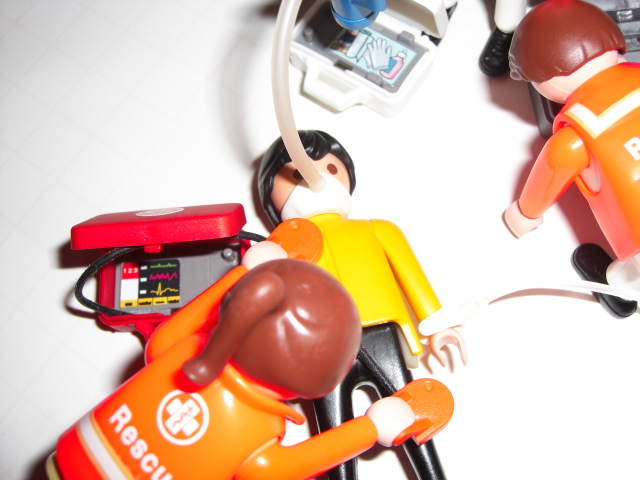My post today is loosely in support of one called “EMS Week Resolution” that went up this morning at The Ambulance Chaser.com. Have a look; it is a good read essentially about “growing up.” My take on it though is slightly different, and is something that I am not alarmed about because it is a trend that I see from system to system and while attending EMS conferences. Our friendly neighborhood Ambo Chaser points out to us that he was involved in a message board discussion about a state that was mandating all paramedics who were even short a half a credit on their continuing education to retake their National Registry exam. How dare a state demand that? How dare they penalize their paramedics and jeopardize the infrastructure of their EMS system over a half an hour of training? While our favorite attorney/paramedic makes some great points about accountability and professionalism and (yet again) personal responsibility, I want to look at it from a slightly different angle. Why the heck is anyone even close to the minimum hours when it comes to training? How could you let that happen? We are surrounded by education in this field. You can get it online through great sites like MedicEd and CentreLearn, and you can find enough educational classes that both provide and don’t provide CEU’s that there is no excuse to even be near that bare minimum that we all seem to try to strive for when thinking about getting ourselves educated in our chosen profession. A friend of mine once used a great saying which I have used many, many times since hearing it and frankly, it seems to fit perfectly here: “Don’t shuffle your feet you’ll trip over the bar!” We set the bar so low that there is not only no excuse to clear it but there is absolutely no excuse to even be close to it. If you want to talk about professionalism and being responsible for our patient actions, well, this is where it starts. Greg Friese pointed out in a class of his that I took at EMS Today one year that free pizza brings in more students than good...
The Podcast

We took the week off last weeks or Labor Day and this week the podcast is back with a short interview that I did on Jamie Davis’ The Medicast where we talk about the show and what it is all about. Regular shows will be back next week! Enjoy! To download the show in MP3 format, follow this link! Otherwise check the show out below: ...
Read MoreFor Leadership

Roughly twelve years ago, AMR and AEV’s Safety Concept Vehicle made its way to Springfield for us to take a look at. It included a number of interesting features like an expanded harness setup to allow providers to move a little more freely around the box while still being anchored. There were mounting brackets for cardiac monitors, and video cameras to monitor both the rear of the truck for backing up, and the passenger side to check for traffic before opening the curbside door. The vehicle itself contained a lot of positives that have been adopted over the years. I see more cameras used in emergency vehicles and I’m a a fan of the checkered or striped patterns on the backs of trucks to make them more visible to oncoming traffic. I have also seen a few more monitor brackets. But where is everything else? When is that ambulance of the future going to get here? Year after year at conference after conference, there will undoubtedly be some ambulance parked on the exhibit hall floor touting itself as the “ambulance of...
Read MoreFor the Field

There has been a lot of buzz over the past week about California’s EMS Bill of Rights. Dave Konig has a great take on it over at The Social Medic that I encourage you to read. American Medical Response has even launched a counter campaign to it complete with the hashtag #LivesBeforeLunch. While that makes me cringe a bit, I want to touch on one line of AMR’s response to the bill that stuck with me. “As written, AB 263 is an unprecedented political power grab, and will heavily penalize private – but not public – employers of EMTs and paramedics.” When I look back at my career with AMR that spanned more than twelve years, I had a lot of ups and downs. Had busy shifts and I had slow shifts. I found myself mandated to work despite being sick, or just needing a day off. Through the highlights and the lowlights of working in a busy 9-1-1 system that amassed roughly 40,000 calls per year, the instances where my 12 hour shifts hit double digits were rare when compared...
Read MoreLessons to Learn

Any time I peruse the pages of EMS related articles I will inevitably come across some service that is trying to take over another service’s area. Diving deeper into those articles usually reveals the same usual arguments. Imagine my surprise when I clicked on an article about the East Longmeadow Fire Department’s move to take over EMS response in the town of East Longmeadow. I should first point out that what I am about to write is meant to represent my own personal views on the state of the industry. I have not inquired about anything having to do with the current staffing of ambulances and volume. What I am reflecting on is the article and just the article coupled with my years of experience in the greater Springfield area. Just to give a little bit of background here, I used to have a dog in this fight. As many of you know, I was a 12-year employee of American Medical Response, the last seven of which as a supervisor. I participated in contract bids for the town, and saw service...
Read MoreRecent Posts
Podcast Episode 4: Happy EMS Week!
This week, Scott Kier is joined by RJ Stine, Ben Neal, and Amy Eisenhauer to talk about EMS Week. The discussion quickly turns to the panel’s attempt to answer the question of “how do we make sure that people working in EMS see as many EMS weeks as possible?” Enjoy this week’s show, and Happy EMS Week! To read more from Amy Eisenhauer, check out her blog, The EMS Siren To read more from RJ Stine, check out his blog, Hybrid Medic To download this week’s podcast, click this link! Otherwise, use the player...
Flashcards!
After doing some work with a paramedic class and looking at the way they studied it made me think back to how I studied when I was taking my first paramedic class back in college. When I got to college my study habits were poor to say the least. I was one of those people who always got it or I did not. I can count the number of tests that I studied for in four years of high school on one hand, because I would just absorb information. I could have gotten better grades if I had applied myself more. While I was a good test taker, I skipped a lot of homework assignments because I saw them as being busy work. When it would come time to take a test my score would be solid. When I would have to do a report I could research it and put something good down on paper. Homework though, that was my downfall. Once I got to college the game had changed all together. I went from not having to study to having to learn how to study because it was something that I had never done all that much. I had trouble confirming for myself that I knew something without some concrete evidence in front of me. That is why products like Dan Limmer’s Paramedic Review app were so important to me when I got my National Registry Paramedic certification a few years ago. I could take a test, get immediate feedback on it and then have a score in front of me that gave me an idea of how well I was grasping the information. Once I got to my paramedic class I found myself having to study more and more, especially in the first semester. While carrying a moderately high class load I had to deal with the Fick principle, acid/base balancing and pharmacology. Oh yes. Pharmacology. My program brought in a doctor for a month who gave us his own four inch d-ring binder full of information. We did not just have to learn each medication, its purpose and its dose but we had to also know contra indications, mechanism...
The DO’s and DON’Ts of ePCRs
I’ve been giving a lot of thought lately to what would make an EPCR system perfect for me. Most of these thoughts have stemmed from the last year that I have been using what arguably is the worst EPCR system that I have encountered out of the four that I have used. Yes, I know, four really is not that many when you consider how many products are out on the market still, the thing has a long way to go to reduce the frustration that I seem to consistently encounter. What I decided to do was create a few “Do’s and Don’ts” that might give someone developing or improving an EPCR system some things to think about when working on their product. DO have an open source coding system that will allow different products like cardiac monitors to upload their data to it with the greatest accuracy possible. Make sure that event markers line up with the wording in the monitor and if possible allow the patient information we put into the monitor (name, age, case number) to import into the chart so that it only has to be entered once. Also, allow preferences to be set for each person that can include truck number, crew member, and other information that is the same for every single shift. DON’T try to do too much of my job for me. I have never met an auto generated narrative that I like. It does not matter if it is CHART, SOAPE, or anything else that you can name, things just never seem to add up. Facts get missed, and what I see with my eyes is either left under described or completely missed. Anyone who teaches a PCR writing class will reinforce the concept that your narrative is your bread and butter. It is what will tell you the most about a call if you get called to the carpet for it years down the road. It is what will get you paid if there is a dispute with MEDICARE. Narratives are so incredibly important that they need to be left to the tech to write them, not the computer. DO have a repeat or...
Podcast Episode 3: Where Are They Now? @MsParamedic
I have met a lot of people over the last four years. Few have had a bigger impact on my life than Natalie Quebodeaux Cavander. She has been one of my closest friends since I started writing and podcasting, and has been incredibly supportive every step of the way. Life’s changes take us all in different directions, which is exactly what it did for Natalie. This week, Natalie and I talk about the twists and turns that her life has taken over the last couple of years, and discuss a few new angles she is taking a look at EMS from. To read some of Natalie’s posts check out her old blog, MsParamedic.com. Even though she does not write there anymore her posts are still incredibly relevant. It goes without saying that Natalie was also an excellent podcaster. Check out the podcast she used to be part of known as The Gen Med Show. Also, I feel it bears mentioning that the picture below is from Las Vegas in 2011. Don’t worry though, we found out after this picture was taken that Jeff Sorenson better known as @Chicagomedic who is standing between us, was not an ordained minister, so like many Vegas weddings this one was over before it started! To download the podcast, click this link! Otherwise listen on the player below....




Recent Comments